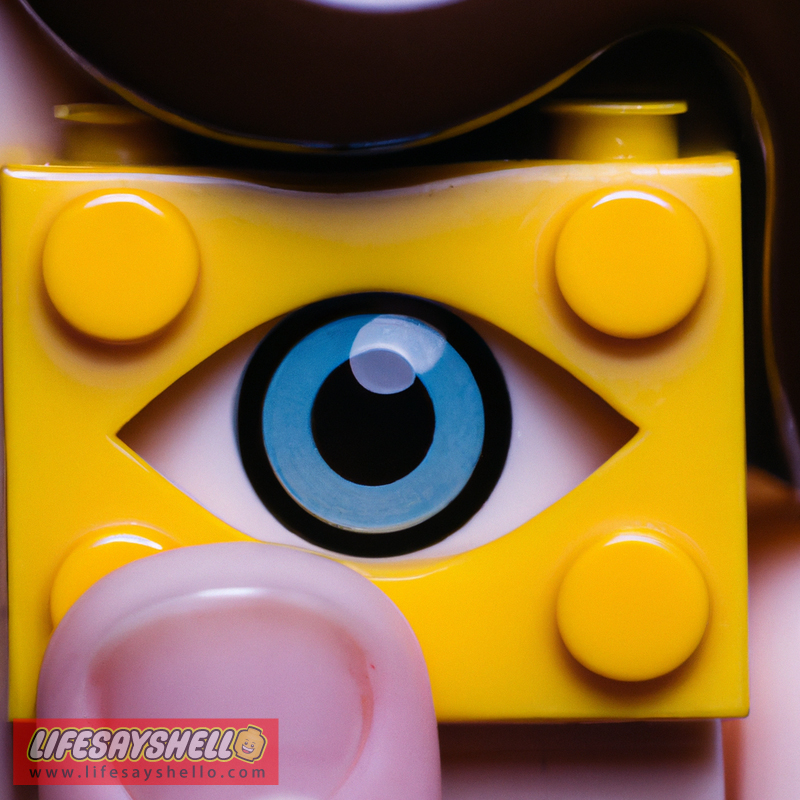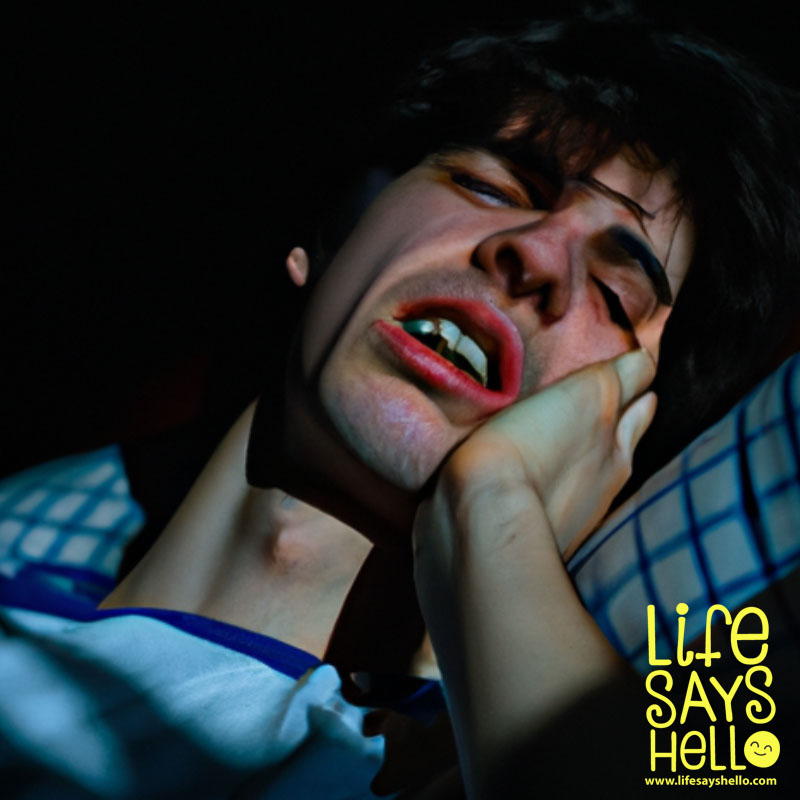10 Common Causes of Eye Twitching Explained

Have you ever experienced an annoying twitch or spasm of your eyelid that you just can't seem to control? You're not alone - eye twitching, also known as eyelid myokymia, is a very common condition. In this article, we'll explore the top 10 reasons your eye may be twitching.
Eye twitching occurs when the muscles around your eye begin to spasm. These little muscles are controlled by nerves in your brain, and when those nerves misfire, your eyelid and the area around your eye will quiver or twitch involuntarily. It usually only affects one eye at a time.
For most people, these types of eyelid spasms are relatively minor, just a slight fluttering that may come and go over the course of a few minutes. But in some cases, the twitching can be more pronounced, causing your eyelid to close tightly or repeatedly blink.
While eye twitching can be annoying, the good news is that it's rarely a sign of anything serious. Below, we'll break down the most common triggers that can set your eyelid aflutter.
1. Fatigue and Lack of Sleep
Not getting enough shut-eye is a prime suspect when it comes to eye twitching. If you're burning the midnight oil or just not sleeping soundly, the resulting fatigue on your muscles and nerves can cause them to spasm and twitch haphazardly.
Your eyelids and the tiny muscles around your eyes are particularly sensitive to the effects of sleep deprivation. Even just a night or two of missed Zzz's can set your eyelid twitching. Make sure you're allowing your body the 7-9 hours of quality sleep it needs to function optimally.
2. High Stress Levels
Stress and anxiety are another major culprit when it comes to eyelid twitching. When you're stressed, your body pumps out adrenaline and cortisol, the "fight or flight" hormones. Chronic stress keeps those hormones elevated, which can cause muscles all over your body to tense up and spasm.
The muscles around the eyes seem to be especially reactive to stress. If you notice your eye twitching during periods of high anxiety or tension, some relaxation techniques like meditation, yoga, or deep breathing could help calm your nerves and muscles.
3. Excessive Caffeine Intake
We all love our coffee, but too much caffeine can backfire and cause issues like eye twitching. Caffeine is a stimulant that activates your central nervous system. For some people, excessive caffeine intake overstimulates the nerves, leading to involuntary eyelid spasms and tics.
Pay attention to your daily caffeine consumption from coffee, tea, energy drinks, and other sources. Try cutting back on your intake to see if it provides relief from eye twitching. Limiting to 400mg or less per day (about 4 cups of brewed coffee) is a good guideline.
4. Alcohol Use
Like caffeine, alcohol can also irritate nerves and cause eyelid twitching in some people. Alcohol depresses your central nervous system, eventually causing it to rebound with excitatory effects. This fluctuation in your nervous system can lead to muscle spasms, including in the delicate eye area.
If you notice your eye twitching after a night of drinking, it may be wise to cut back on the booze to see if your symptoms improve. Try to limit alcohol to 1 drink per day for women and 2 drinks per day for men.
5. Eye Strain from Screens and Reading
Digital eye strain is real, and it may be causing your eye to twitch! Prolonged staring at screens like phones, tablets, and computers can fatigue the ocular muscles. Eye twitching can result from the eye strain of intense visual concentration.
Reading intensively or doing other close-up work like sewing can also strain the delicate eye muscles and cause twitching. Be sure to take regular screen breaks and use the 20-20-20 rule: Every 20 minutes, look away about 20 feet in front of you for 20 seconds.
6. Dry Eyes and Irritation
If your eyes are dry and irritated, it could lead to twitchy eyelids. Your eyes need ample lubrication to function smoothly. But dry air, wind, air pollution, and activities like wearing contacts can rob moisture from the eye surface, causing redness, grittiness, and irritation.
Chronic dry eye is the most common cause of eye twitching after fatigue and stress. Use moisturizing eye drops, limit contact lens wear, and consider a humidifier to ease dryness. Also avoid rubbing your eyes, which further dries them out.
7. Exposure to Bright Lights
Bright sunlight, fluorescent lights, and glare can cause eye twitching in some individuals. The squinting and pupil contraction induced by bright light strains the muscles around the eyes. This can lead to spasms and twitching, especially if the eyes are already fatigued.
Wearing sunglasses outside on sunny days can help reduce glare. If indoor lighting is triggering eye twitching, try switching to lamps with softer lightbulbs or installing an anti-glare screen on your computer. Light sensitivity may also be a sign of an underlying condition like dry eye.
8. Side Effects of Medications
Certain medications list eye twitching as a potential side effect. Medicines used for treating migraine headaches are most commonly associated with eyelid tics and spasms. But drugs used for psychiatric conditions, allergies, colds, or Parkinson's disease can also sometimes cause twitchy eyes.
If you suspect a new medication may be causing frequent eye twitching, check the label and talk to your doctor about potential substitutes or dosage adjustments. Never stop a prescribed med without medical guidance.
9. Eye Infections and Inflammation
Inflammation around the eyes from infections like conjunctivitis (pink eye) or blepharitis can trigger eye twitching. The swelling and irritation of eye tissues puts pressure on the muscles, causing them to spasm uncontrollably.
Other inflammatory eye conditions like iritis, keratitis, and uveitis are also associated with eyelid twitching. See an ophthalmologist if you suspect an infection or inflammation that requires treatment with prescription eye drops to ease swelling.
10. Neurological Disorders (Rare)
In very rare cases, persistent and severe eye twitching can stem from an underlying neurological condition. Chronic eyelid spasms and blepharospasm (involuntary forced closure of the eyes) may signal a problem with the nerves supplying the face and eye muscles.
Disorders like Bell's palsy, dystonia, Parkinson's disease, and Tourette's can cause facial and eyelid tics and twitching. But eye twitching is almost never the only symptom with neurological conditions. Other issues like muscle weakness and coordination problems are usually present.
When to See a Doctor
For most people, eye twitching is just an occasional minor annoyance triggered by fatigue, irritation, or too much caffeine. Simple at-home remedies are often sufficient, and the twitching usually fades within a few days.
However, if your eye twitching is severe and persistent, accompanied by other concerning symptoms, or impeding your vision and daily activities, make an appointment with your doctor for an evaluation. Seek urgent care if eye twitching arises along with double vision, muscle weakness, headaches, or loss of coordination.
How to Stop Eye Twitching: Home Remedies
Now that you know what's causing your eye to twitch, here are some simple home remedies you can try to find relief:
Get More Rest
As discussed above, fatigue is the #1 trigger for eye twitching. Be sure to get adequate sleep and take power naps or rest breaks during the day if needed. Listen to your body's need for rest.
Reduce Stress
Meditation, yoga, deep breathing, and other relaxation techniques can help lower stress and anxiety levels that may be causing your eyelid to flutter. Make time for relaxing activities you enjoy.
Limit Caffeine and Alcohol
Cut back on beverages like coffee, tea, and energy drinks to see if it lessens the frequency of eye twitches. Alcohol can also irritate nerves, so reduce intake.
Take Frequent Breaks When Viewing Screens
Follow the 20-20-20 rule to reduce digital eye strain: Every 20 minutes, look 20 feet away for 20 seconds. Blink frequently when using devices.
Use a Warm Compress
Applying a clean, warm washcloth to your closed eyelid for 10 minutes can help soothe muscle spasms and tension. Do this a few times per day as needed.
Try Eye Drops
Over-the-counter lubricating eye drops can provide relief from dryness and irritation that may be causing twitching. Preservative-free drops are ideal.
Gently Massage the Area
Use your fingertips to gently massage the muscles around your eye to help relax muscle tension. Take care not to rub the eye itself.
Avoid Triggers
Pay attention to potential triggers like bright lights, wind, smoke, and allergens. Limit your exposure or take preventive measures like wearing sunglasses.
Stay Hydrated
Drink plenty of water, which helps keep your muscles and nerves functioning optimally and avoids dehydration that can cause twitching.
Manage Underlying Conditions
If an existing condition like dry eyes or a vitamin deficiency is worsening twitching, work on controlling it with your doctor's guidance.
When to See Your Doctor
If at-home remedies don't provide relief after a few weeks, make an appointment with your primary care physician or eye doctor. Seek urgent care for severe twitching accompanied by other symptoms like double vision or muscle weakness.
Conclusion
Eye twitching is a common annoyance but rarely indicates anything seriously wrong with your health. Pay attention to potential lifestyle triggers like lack of sleep, excess stress and stimulants, and eye irritation. If home treatments don't provide relief from chronic twitching, don't hesitate to talk to your eye doctor or primary care provider. With some diligent self-care and medical guidance if needed, you can get your pesky eyelid back under control.




Comments